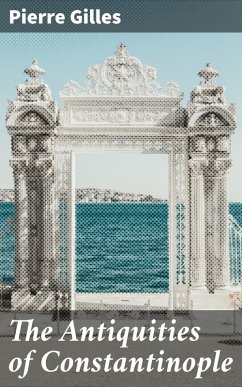In "The Antiquities of Constantinople," Pierre Gilles meticulously chronicles the architectural and cultural treasures of Byzantium's capital during the Renaissance. With a keen eye for detail and an aesthetic sensibility, Gilles employs an eloquent literary style that intertwines rigorous observation with poetic reflection. Drawing from historical texts and personal exploration, he paints a vivid picture of the city's splendor and historical significance, all while navigating the complexities wrought by political and cultural transformations. His work serves as both a travelogue and a scholarly treatise, offering invaluable insights into the ruins, monuments, and the vibrant life that once animated the city. Pierre Gilles, a French physician and antiquarian of the 16th century, was profoundly influenced by the burgeoning interest in classical studies and the rediscovery of ancient texts that defined this period. His extensive travels through the remnants of the ancient world, coupled with his scholarly pursuits, equipped him with a robust understanding of archaeology and history, making him an ideal narrator of Constantinople's rich past. Gilles's background in medicine also reflects an analytical approach to observation, enriching the narrative of his discoveries. This book is a must-read for historians, art historians, and anyone captivated by the interplay of nostalgia and discovery inherent in the study of ancient cultures. With its unique blend of academic rigor and lyrical prose, "The Antiquities of Constantinople" invites readers to traverse the city of Byzantium, fostering a deeper appreciation for its enduring legacy.
Dieser Download kann aus rechtlichen Gründen nur mit Rechnungsadresse in A, B, BG, CY, CZ, D, DK, EW, E, FIN, F, GR, H, IRL, I, LT, L, LR, M, NL, PL, P, R, S, SLO, SK ausgeliefert werden.









